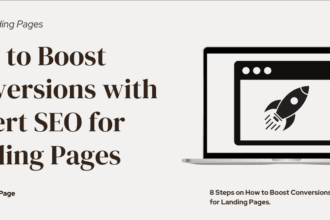
Background banner image credit Unsplash
Getting prospects to land on your website is no easy task. This is the reason why SEO in eCommerce marketing means so much for an online retail business to be successful and competitive. Because shopping behaviors, trends, and site features are constantly changing, it is important to be not only technologically competent but also in terms of search engine optimization.
On this page, we’ll introduce you to why eCommerce store owners have to give SEO the needed attention and which parts of the store deserve to be SEO optimized. Let’s roll!
eCommerce SEO: Why Should You Even Care?
1. You want your store to be successful and easy to find, right?
In order for an eCommerce site to continuously bring back fruitful results, it must be modern, glitch-free, fast, intuitive to use and navigate regardless of device, boast great UX and UI (these are just about the main reasons why more and more eCom businesses are currently investing into building a progressive web application for their store). Of course, the store should also be fitted with great products and useful content, have a decent pricing policy.
Yet before you jump to all of that, the first most important point you should think about is whether your website is easily findable for your potential buyers and what you can improve.
Let’s face it, it won’t matter how amazing your website and products are if not that many visitors can find your store, browse it, and buy things from you. In this case, there isn’t much sense in this beauty. Search engine optimization greatly deals with how your site gets organic traffic and visitors, therefore, the matter is worth double consideration.
If your eCommerce store isn’t a mega well-known brand yet (say, not that many people know your website’s domain and don’t type it directly in the browser), if your niche has high competition, or if you’re simply not getting enough quality leads, poorly handled SEO might be the pit-hole that’s stopping your store from success.
2. You want to ideally spend less on customer acquisition, agree?
Sure, you can continue obtaining leads by continuously investing in pay-per-click ads and other similar targeted campaigns. PPC brings faster results but it keeps on munching down your marketing budgets and costs you money. SEO works much slower but in the long term, it pays off big time. Based on the stats collected by WebFX:
“$9000 to $10,000 per month is the amount the average PPC campaign costs for small to mid-sized companies.”
Do the math. This is over 110k USD per year, every year. Even if some SEO effort will help your business cut this number by, say, a quarter, why miss out on the opportunity?
3. You do understand that SEO isn’t just about keywords, yes?
Apart from specific site elements and pages that need SEO optimization (more on this in the next section of the article), a lot of your eCommerce store’s ranks will be influenced by the website’s speed.
If your pages take forever to load, this is really bad since people will keep on leaving your store empty-handed, causing large bounce rates for the website and your lost opportunities to earn on sales. According to Hosting Tribunal:
“On an annual basis, a 1-second delay can lead to $2.5 million in missed revenue if your shop generates $100,000 per day.”
So, take your site speed optimization seriously. The same applies to mobile optimization. Every single day more people turn to their smartphones and tablets for shopping purposes. They shop from their mobile devices as they commute to work or during their lunch break, basically, wherever they take their phones with them. You must agree that the situation is not the same as with desktop computers.
For this reason, your mobile version of the store’s site must not be simply a shrunk design of the desktop version. The site should be convenient for users to navigate and spend time on, especially if they’re on the go. Just a simple example here, site elements must be placed differently than on the desktop version so that all the key elements become reachable using your thumb.
Which Parts of an Online Retail Store to SEO Optimize?
Now that it’s more clear why you shouldn’t overlook search engine optimization on your eCommerce site, let’s go over which specific parts of the website need to be SEO optimized.
- Site structure (this is vital for simplifying website navigation and helping crawlers to “read” the page);
- Main site menu (the categorization of the major pages should be placed within the top menu, in an ideal case scenario, any product page should be placed from the top menu no farther than in 3-4 clicks);
- All images (pictures matter a lot for visualization, yet they must be compressed to their minimal weight so as to not slow down page load time, furthermore, they should be properly named and have alternative tag texts);
- Cross-linking pages within the site (apart from getting backlinks from other websites, proper inter-linking within the store’s site is another point not to miss out on, this is helpful for users and increases page visits);
- Product names and their descriptions (ideally, product names should contain a keyword and the brand name, the same applies to how you handle the page structure from H1 to H5, as well as what you use in your descriptions and SEO texts, note, though, that too many keywords lead to negative results, so don’t stuff);
- Every page’s meta information (this one is self-explanatory, not filling out metadata properly is taboo, don’t use automatic tags, and don’t copy-paste the same metas on several pages to avoid confusion and page rivalry);
- URLs (in addition to a strong domain name, the link texts matter too, they should be short yet consistent, reflecting the content of the page as precisely as possible).
Over to You
Summing up, SEO is vital for an eCommerce store to thrive. It’s responsible for bringing you organic traffic, for helping buyers find you, for your site’s ranks, among other things. Therefore, start giving your store’s SEO more attention, and you’ll help it pick up its pace!
About the Author
Alex Husar

Alex Husar, Chief Technology Officer at Onilab with 8+ years of experience in progressive web application development, Magento migration, and Salesforce development. He graduated from the Czech Technical University and obtained a bachelor’s degree in Computer Software Engineering. Alex’s expertise includes both full-stack dev skills and a strong ability to provide project-critical guidance to the whole team.
Gravatar: alex.k.husar@gmail.com
Social media:
https://www.linkedin.com/in/alex-husar
https://twitter.com/AlexHusar1








